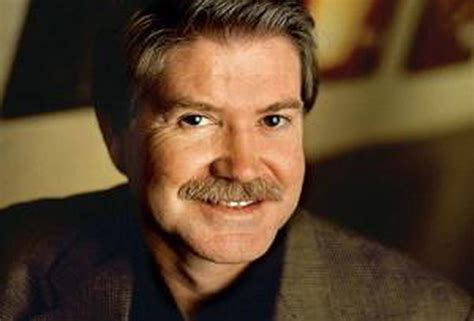A Quote by Fulton J. Sheen
Tolerance is an attitude of reasoned patience toward evil... a forbearance that restrains us from showing anger or inflicting punishment. Tolerance applies only to persons... never to truth.
Related Quotes
Tolerance is an attitude of reasoned patience towards evil and a forbearance that restrains us from showing anger or inflicting punishment. But what is more important than the definition is the field of its application. The important point here is this: Tolerance applies only to persons but never to truth. Intolerance applies only to truth but never to persons. Tolerance applies to the erring; intolerance to the error.
Anger cannot be overcome by anger. If someone is angry with you, and you show anger in return, the result is a disaster. On the other hand, if you control your anger and show its opposite - love, compassion, tolerance and patience - not only will you remain peaceful, but the other person's anger will also diminish.
Tolerance obviously requires a non-contentious manner of relating toward one another’s differences. But tolerance does not require abandoning one’s standards or one’s opinions on political or public policy choices. Tolerance is a way of reacting to diversity, not a command to insulate it from examination.
Unlimited tolerance must lead to the disappearance of tolerance. If we extend unlimited tolerance even to those who are intolerant, if we are not prepared to defend a tolerant society, then the tolerant will be destroyed, and tolerance with them. We should therefore claim, in the name of tolerance, the right not to tolerate the intolerant.
Tolerance is the last virtue of a depraved society. When an immoral society has blatantly and proudly violated all the commandments, it insists upon one last virtue, tolerance for its immorality. It will not tolerate condemnation of its perversions. It creates a whole new world in which only the intolerant critic of intolerable evil is evil.
My most fundamental hope is for a worldwide attitude of tolerance, which will only come through education and an awareness of other cultures and religions. The more people are exposed to other philosophies and thoughts, the more possible it becomes to resolve world conflicts peacefully. Education builds tolerance for other points of view.
The antidote to hatred in the heart, the source of violence, is tolerance. Tolerance is an important virtue of bodhisattvas [enlightened heroes and heroines] - it enables you to refrain from reacting angrily to the harm inflicted on you by others. You could call this practice "inner disarmament," in that a well-developed tolerance makes you free from the compulsion to counterattack. For the same reason, we also call tolerance the "best armor," since it protects you from being conquered by hatred itself.
Hard times build determination and inner strength. Through them we can also come to appreciate the uselessness of anger. Instead of getting angry nurture a deep caring and respect for troublemakers because by creating such trying circumstances they provide us with invaluable opportunities to practice tolerance and patience.
Jesus expressed intense anger toward those who where immoral, such as the self-righteous Pharisees, but he never suggested that they were demonized. Toward the demonized, however, he never expressed anger; rather he exhibited only compassion. As Langton notes, "Pity rather than anger characterizes the attitude of Jesus toward the possessed...He treats them as if they were the victims of an involuntary possession." Indeed, he treats them as though they are casualties of war. For, in his view, this is precisely what they are.































